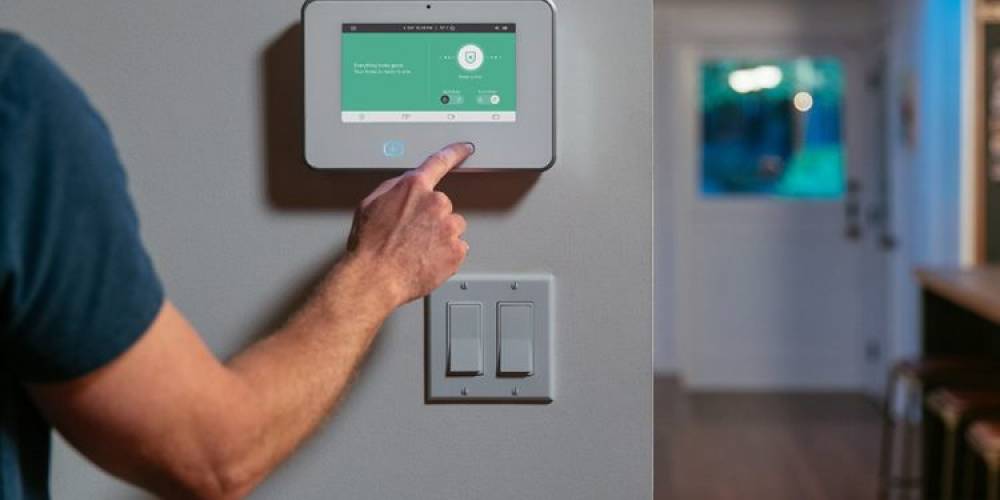
Smart Homes: Things you should know before investing
What is a smart home?
A smart home is one that is equipped with internet-connected devices that enable remote management and monitoring of appliances and systems such as lighting, heating, and so on. Often referred to as home automation, smart homes provide homeowners with a sense of security, comfort, energy efficiency, and convenience, all while allowing them to control the smart devices installed in their home via a smart home app or other networked devices. Typically, smart home automation systems, which are a component of the Internet of Things (IoT), share consumer usage data in order to collaborate and automate actions based on the home owner's preferences.
The next big thing is smart homes. You may not realize it yet, but somewhere along the line, your day will be made easier as a result. Smart home technology has an effect on more than the homes in which it is installed. Its influence extends to other sectors such as business, science, and even health care.
Smart Homes are the most recent development in the field of home automation. This technology is rapidly establishing a reputation for itself. Here are a few facts about smart homes you probably didn't know.
In the Beginning
Contrary to popular belief, intelligent homes have existed for a long period of time. The initial concepts were created between 1966 and 1967. Two devices, the ECHO IV and the Kitchen Computer, were developed but never commercialized. The ECHO IV is capable of turning appliances on and off. It could even be used to control a thermostat and create shopping lists.
This technology has been developed over a lengthy period of time. The results of the time invested are only now becoming apparent.
A New Millennium
Only at the turn of the millennium were smart home products made available to the general public. In the early 2000's, domestic technologies, home networking devices, and other gadgets were available for purchase. The start of the technology boom resulted in the birth of the smart home industry.
A Demand for Voice Control
According to a SafeatLast study, 72% of Americans who own smart home products desire voice control capability. It's one of the fastest growing trends in the smart home industry, which makes sense. It's just so much faster to give quick instructions than it is to type or press buttons, isn't it?
Millennials
This generation is the industry's poster child. They are accelerating the adoption of this technology at a faster rate than any previous generation. Millennials already own 47% of smart home products. 70% of them intend to increase their product purchases.
Smarter Security
62 percent of smart homeowners in the United States believe that the primary benefit is security. Among the most frequently used smart devices are smart security products. According to analysts, it will generate more than $100 billion in revenue by 2020.
Smartphone Connectability
Smart homes are constructed in such a way that they can communicate with other smart devices. Smartphones are one of the most frequently used smart devices. It's unsurprising, then, that 76% of smart home products are controlled via a smartphone. Samsung is taking advantage of this. They are the market leaders, having generated $213 billion in revenue across 104 countries. They are a rare company that sells both smartphones and home appliances. They are undoubtedly profiting from the synergy.
Housing Market
81 percent of homebuyers would prefer to purchase a home with pre-installed smart home products. Within the next decade, 68 percent of Americans believe smart homes will be as prevalent as smartphones.
Cash Savings
45 percent of smart homeowners in the United States save an average of $98,30 per month. This adds up to more than $1,000 per year. Smart thermostats, for example, can save you up to 20% on your annual heating and cooling costs. Smart homes are not just for convenience's sake. Additionally, it can benefit your budget.
Internet of Things
Smart Homes make use of a technology referred to as the Internet of Things (IoT). IoT is used to power a wide variety of devices. Appliances, smartphones, computers, and even automobiles are all examples. According to analysts, the Internet of Things will generate revenue of more than $300 billion by 2020.
Internet on Wheels
Automobiles are not exactly homes. However, smart home technology is transforming how people interact with their automobiles. In 2014, 23 million automobiles were connected to the internet. Analysts predict that by 2020, 152 million automobiles will be connected to the internet.
The Top Performers
The most frequently used products are smart locks and smart thermostats. Smart locks provide an excellent level of security. You can control it remotely via a smartphone app. Allow access to people you trust even when you are not at home. The potential for smart thermostats is enormous. It is simple to use and will help you save money on your utility bills.

